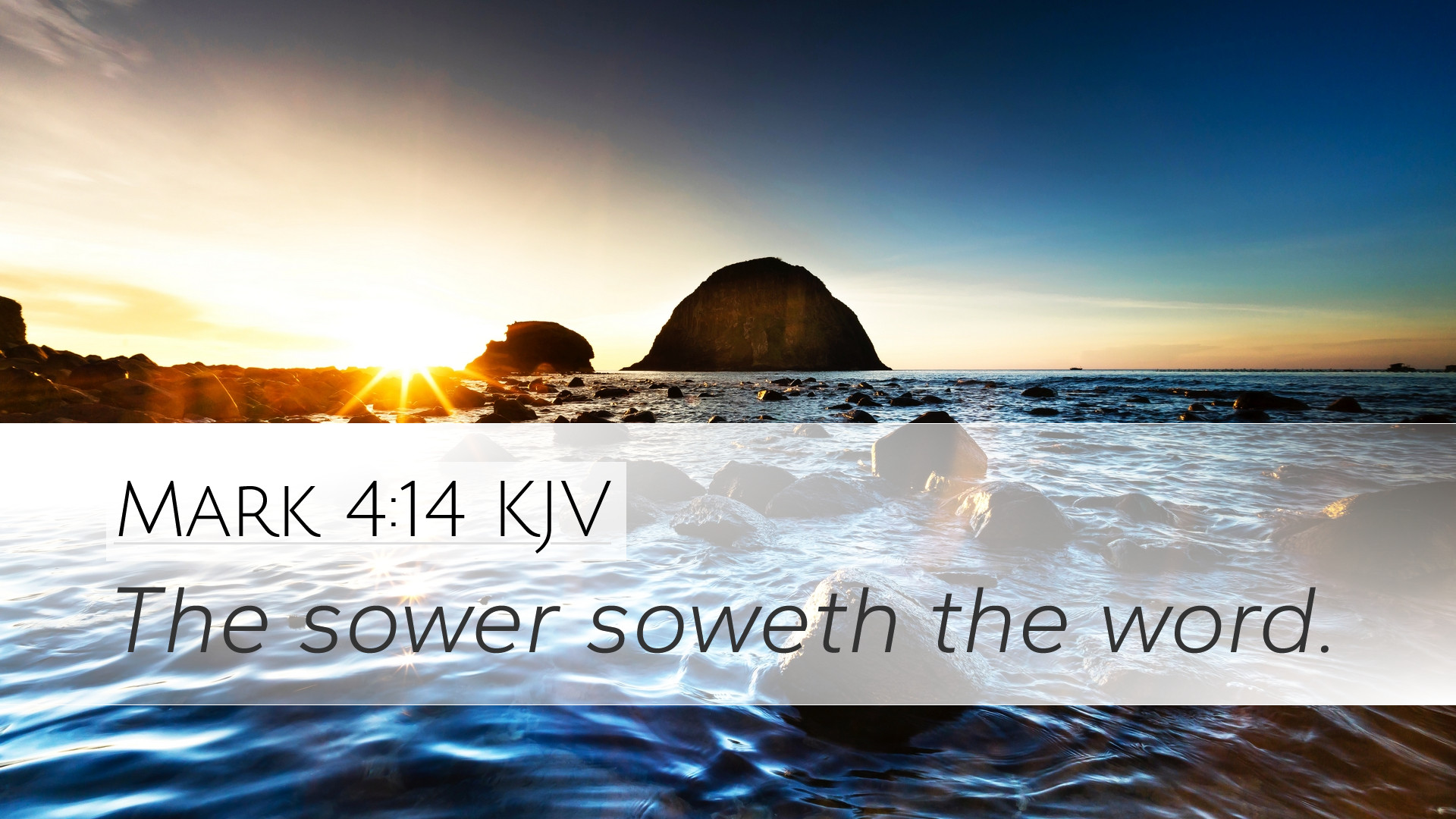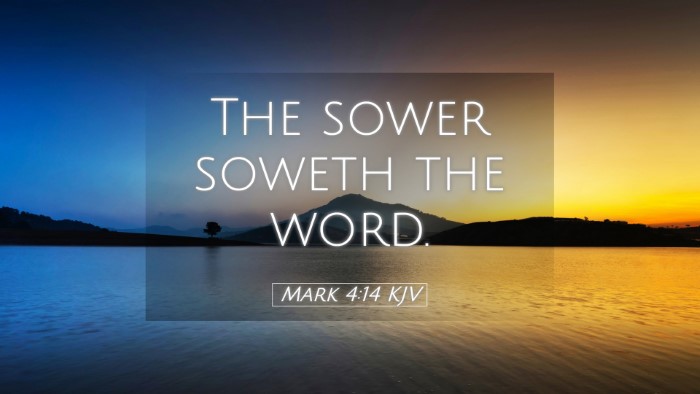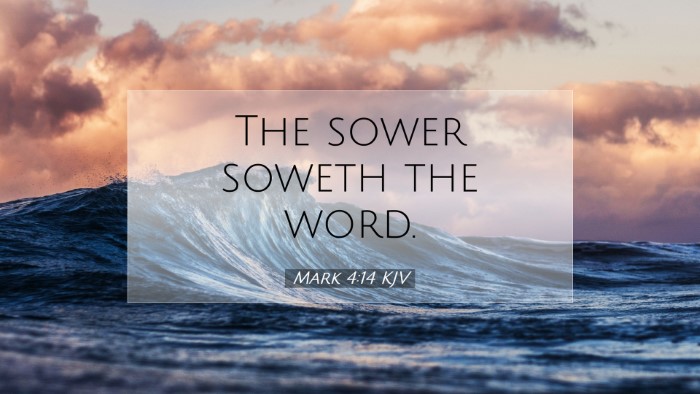Commentary on Mark 4:14
Mark 4:14 states: "The sower sows the word." This verse is part of Jesus' teachings through the parable of the sower, which highlights the different responses to the Gospel message. The implications of this verse are profound and warrant thorough examination through historical, theological, and practical lenses.
Contextual Overview
This verse is situated within a larger narrative where Jesus employs parables to convey spiritual truths. The act of sowing serves as a metaphor for the dissemination of God's Word through the teachings of Christ and His followers. Understanding the context of ancient agrarian practices enriches this metaphor. In the time of Jesus, sowing was an essential and familiar activity, symbolizing the beginning of growth and life.
Insights from Matthew Henry
Matthew Henry notes that the sower represents Christ Himself, who came to proclaim the Word of God. He emphasizes that the act of sowing is deliberate and purposeful, suggesting that believers are to be active in sharing the faith. Henry further explains:
- The Nature of the Word: The word being sown is the Gospel, which carries the power to transform lives. It is not mere human wisdom but divine revelation.
- The Role of the Sower: Each believer participates in sowing—whether through preaching, teaching, or personal witness—illustrating that the Great Commission extends to all disciples.
- The Responsibility of Reception: The responsibility does not rest solely on the sower; the soil, representing the hearts of listeners, must be prepared to receive the Word.
Insights from Albert Barnes
Albert Barnes provides a clear exposition on the parable, detailing various interpretations of the sower and the seed:
- The Seed: Barnes asserts that the 'seed' symbolizes the Word of God, which is potent and life-giving, yet requires suitable conditions to thrive.
- Practical Application: He encourages believers to consider their own hearts as soil. Are they receptive to the Word, or do distractions and challenges stifle its growth?
- Character of the Sower: The sower's role highlights a servant-hearted approach; the focus should not be on results exclusively but on faithful proclamation of the Word.
Insights from Adam Clarke
Adam Clarke provides a comprehensive analysis of the cultural and theological implications of the verse. He notes:
- A Call to Evangelism: Clarke underscores that this parable serves as an encouragement to evangelize, reminding believers of the importance of spreading the Gospel regardless of the immediate outcome.
- The Spiritual Battle: He acknowledges the challenges presented by different types of soil—path, rocky ground, thorny soil, and good soil—representing varying responses to the Word, including apathy and persecution.
- God's Sovereignty: Ultimately, while believers sow the Word, it is God who gives the increase. Clarke reminds us that success in ministry is dependent on divine influence rather than human effort alone.
Theological Implications
Mark 4:14 invites theological reflection on several key concepts:
- The Nature of God’s Word: The transformative power of the Word of God is central to Christian faith. It must be both revered and actively shared.
- The Parable of the Sower as Instruction: This parable serves as a blueprint for understanding the varied responses to the Gospel. It illustrates the necessity for preparedness in ministry, addressing both the heart of the sower and the listener.
- Community and Cooperation: The verse emphasizes the importance of community in sowing the Word. Each believer's contribution is vital to the collective mission of spreading the Gospel.
Practical Applications for Today’s Church
For pastors, students, theologians, and scholars, Mark 4:14 encourages practical application:
- Personal Reflection: Believers should assess their own heart's condition: Are they fertile ground, ready to receive and nurture the Word?
- Intentional Evangelism: The church must prioritize the active sowing of the Gospel, leading to outreach and discipleship initiatives.
- Training Disciples: Equip congregants to effectively share their faith, recognizing that they too are sowers in the world.
Conclusion
Mark 4:14 encapsulates a vital truth regarding the proclamation of God's Word. Drawing on insights from Matthew Henry, Albert Barnes, and Adam Clarke, this commentary presents a deepened understanding of the roles of the sower and the reception of the Word. As the church endeavors to fulfill the Great Commission, the lessons from this parable remain ever relevant, urging believers to cultivate fertile hearts and actively participate in the scattering of the seed of the Gospel.


